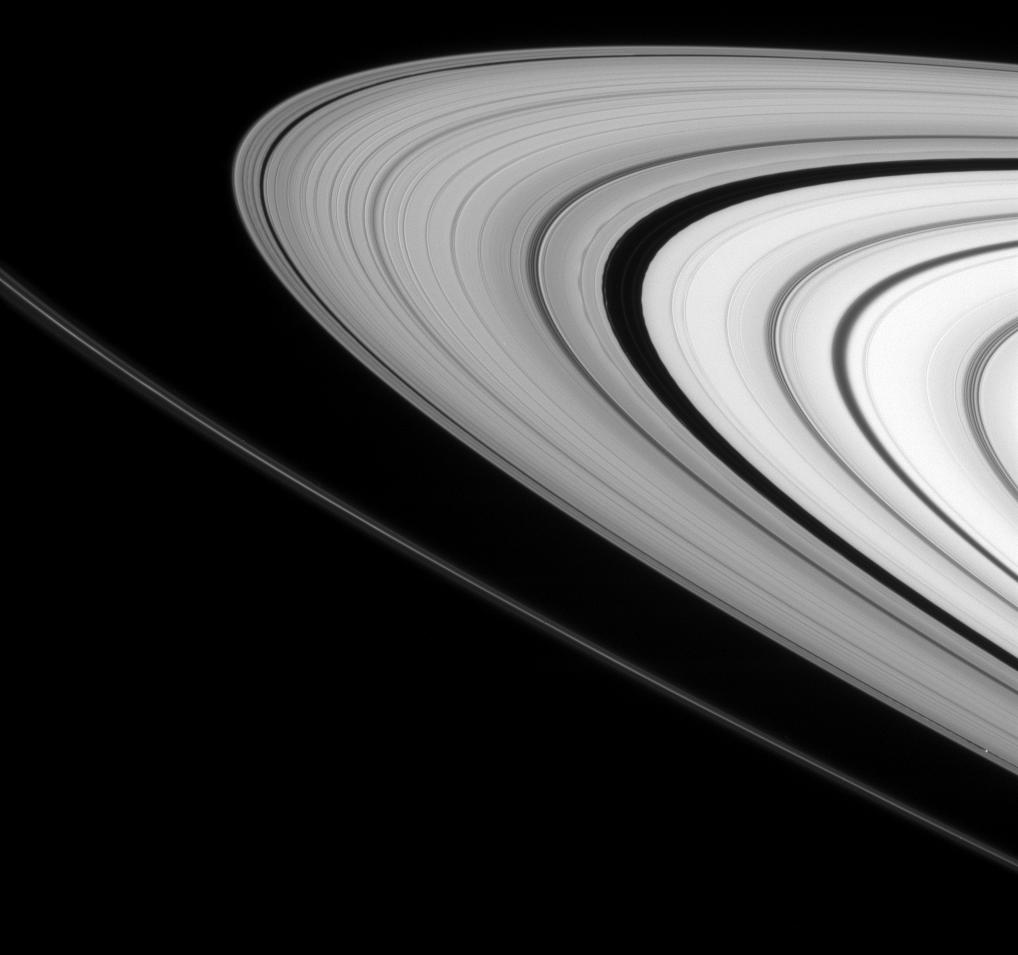Ring-Moon Connections

| PIA Number | PIA09881 |
|---|---|
| Language |
|
This Cassini view features several interesting attributes that show how moons help shape the rings of Saturn.
The embedded moon Daphnis (7 kilometers, or 4.3 miles across) is seen in its narrow gap at lower right. The tiny moon is accompanied by its entourage of edge waves, visible as ripples in the gap's edges.
Right of center, the much broader Encke Gap displays its own edge waves, caused by Pan (26 kilometers, or 16 miles across at its widest point). Also seen are several faint ringlets that inhabit the gap along with Pan.
Just outside, or leftward, of the Encke Gap is a dark, rippling moiré pattern, which occurs when two separate patterns in the rings are superposed on each other but are oriented at different angles to each other. In this case, the moiré pattern is created by interference between wakes caused by a recent passage of Pan and a spiral density wave created by the moon Prometheus. (See Spiral Density Waves for a closer view of a spiral density wave.)
This view looks toward the unilluminated side of the rings from about 4 degrees above the ringplane. The narrow F ring arcs through the scene from lower right toward left.
The image was taken in visible light with the Cassini spacecraft narrow-angle camera on March 4, 2008. The view was obtained at a distance of approximately 1.3 million kilometers (800,000 miles) from Saturn. Image scale is 8 kilometers (5 miles) per pixel in the radial, or outward from Saturn, direction.
The Cassini-Huygens mission is a cooperative project of NASA, the European Space Agency and the Italian Space Agency. The Jet Propulsion Laboratory, a division of the California Institute of Technology in Pasadena, manages the mission for NASA's Science Mission Directorate, Washington, D.C. The Cassini orbiter and its two onboard cameras were designed, developed and assembled at JPL. The imaging operations center is based at the Space Science Institute in Boulder, Colo.
For more information about the Cassini-Huygens mission visit http://saturn.jpl.nasa.gov . The Cassini imaging team homepage is at http://ciclops.org .
Credit: NASA/JPL/Space Science Institute
